Meet-the-Expert Sessions feature talks from prominent leaders in cancer research
This evening, the AACR Annual Meeting 2025 slate of Meet-the-Expert Sessions kicks off with talks by distinguished researchers in the fields of cancer immunology, small cell lung cancer, multigene sequencing, and molecular epidemiology.
Each year, the Meet-the-Expert Sessions showcase individual, 45-minute talks by leading cancer researchers working across a wide range of topics. The sessions allow attendees to learn about the research journeys of thought leaders and interact with them in a unique setting that may not exist otherwise, according to AACR Annual Meeting 2025 Program Committee Chair Matthew G. Vander Heiden, MD, PhD, from the Koch Institute for Integrative Cancer Research at the Massachusetts Institute of Technology and Dana-Farber Cancer Institute.
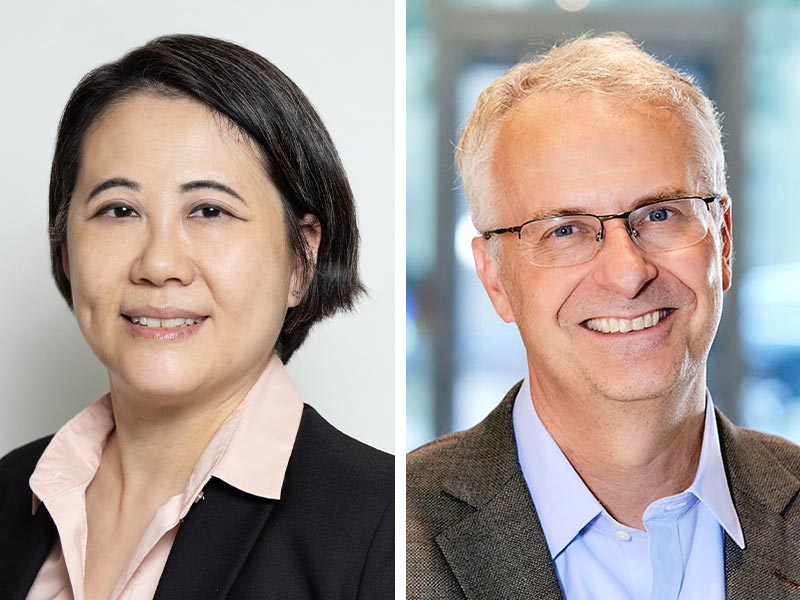
This year, the Meet-the-Expert Sessions will occur Monday, April 28 and Tuesday, April 29 from 5 to 5:45 p.m. CT. AACR President-Elect and Annual Meeting 2025 Program Committee Chair Lillian L. Siu, MD, FAACR, from Princess Margaret Cancer Centre, encouraged attendees to take advantage of this dedicated time with prominent experts. She emphasized that early-career researchers may find the experts’ research journeys, often encompassing decades of work, especially inspiring.
The presenters for tonight’s Meet-the-Expert sessions are listed below, along with a brief summary of each expert’s presentation topic. For the most up-to-date information on session dates, times, and locations, check the Annual Meeting App and Online Itinerary Planner. These sessions will be recorded and available on-demand via the virtual meeting platform through October 2025.
ME01: Caroline Dive, PhD, FAACR
Studying Metastasis in Small cell Lung Cancer
Monday, April 28, 5-5:45 p.m. CT
Room S105, McCormick Place South (Level 1)
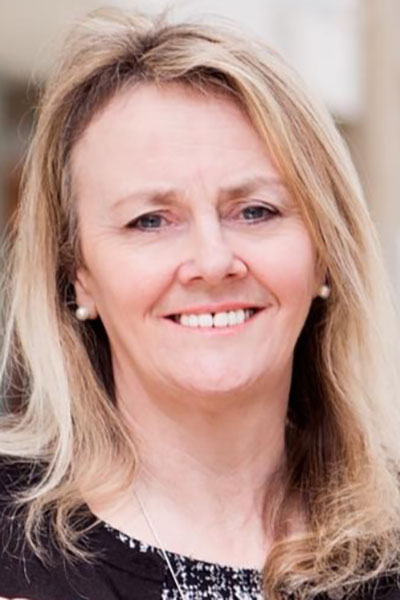
Dive is the director of the Cancer Research UK National Biomarker Centre and interim director of the Cancer Research UK Manchester Institute. She was inducted as a Fellow of the AACR Academy in 2025 for her research in small cell lung cancer (SCLC), including the use of circulating tumor cells to better understand the disease and to monitor tumor evolution.
In her Meet-the-Expert talk, Dive will discuss the challenges of treating SCLC in the clinic and how researchers are using new models to study SCLC metastasis. As a renowned leader in this field, Dive will share her own research on developing tumor explant models from patient-derived circulating tumor cells. She will explain how she has used these models to better understand the metastatic cascade of SCLC cells and how these and other breakthroughs have given researchers a stronger grasp on SCLC metastatic tropism and molecular subtypes.
“The SCLC research field is exciting,” Dive said. “New discoveries about the biology of this most aggressive of human cancers are paving the way to better treatment.”
ME04: Tak W. Mak, PhD, FAACR
Beyond Immune Checkpoint Blockade—Emerging Strategies
Monday, April 28, 5-5:45 p.m. CT
Room S100 BC (Grand Ballroom BC), McCormick Place South (Level 1)
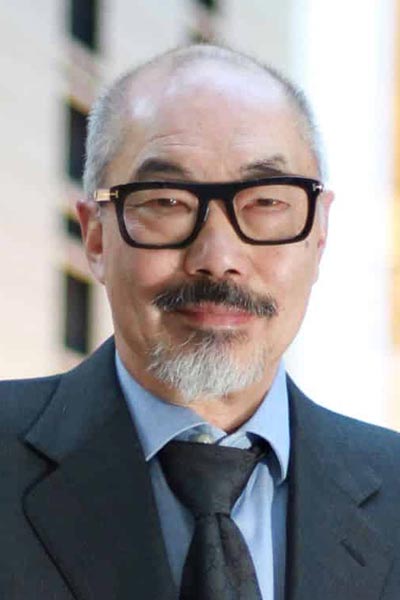
Mak is a senior scientist at Princess Margaret Cancer Centre, a professor in the Department of Medical Biophysics at the University of Toronto, and director of the Centre of Oncology and Immunology at the University of Hong Kong. He was inducted as a Fellow of the AACR Academy in 2013 for his pioneering work in the genetics of immunology, including his group’s discovery of the T-cell receptor.
Mak will discuss how immune checkpoint inhibitors have revolutionized cancer immunotherapy and how the field is moving beyond these drugs to target other critical processes related to tumor immunology. He will share how cell metabolism, genomic instability, and even neuronal cell signaling help shape the complex interaction between tumors and the immune system.
“An unexpected and emerging consideration is that neuroimmunology may play an important role in regulating immune responses,” Mak said.
ME07: Fabrice André, MD, PhD
Multigene Sequencing for Treatment Decisions—What Did We Learn?
Monday, April 28, 5-5:45 p.m. CT
Room E450 B, McCormick Lakeside Center (Level 4)
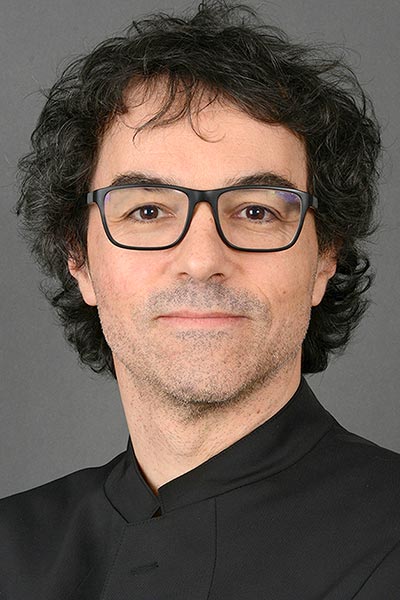
André is the director of research at Gustave Roussy and a professor of medicine at the University of Paris-Saclay. He is a member of the AACR Project GENIE Steering Committee and a renowned researcher studying precision medicine, biomarkers, and targeted therapy in breast cancer.
Next-generation sequencing has transformed the field of precision medicine, but the availability of data has historically outpaced best practices for analyzing and applying it. In his Meet-the-Expert talk, André will review the current ideas surrounding the optimal use of genomics data in clinical practice, how such advances stand to impact the field, and common pitfalls to avoid in data analysis.
“More and more patients with metastatic cancer are receiving multigene sequencing, so there are questions about how we can optimally interpret all this information,” André said. “Our hope is that doctors will be able to provide better treatment if they have the right tools to interpret the data.”
ME08: Elizabeth A. Platz, ScD, MPH
Molecular Epidemiology to Identify Cancer Mechanisms and Prevention Strategies
Monday, April 28, 5-5:45 p.m. CT
Room S102, McCormick Place South (Level 1)
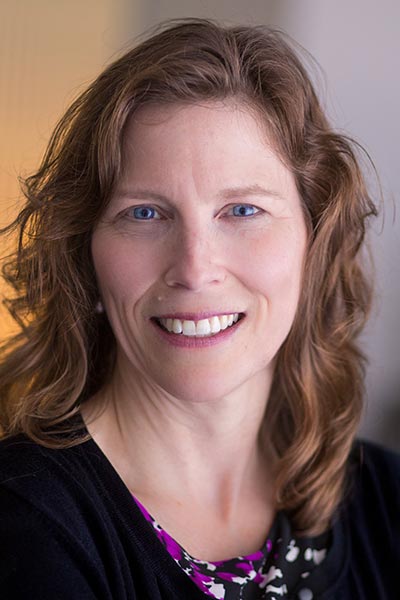
Platz is the Martin D. Abeloff, MD, Scholar in Cancer Prevention in the Department of Epidemiology at the Johns Hopkins Bloomberg School of Public Health and the Sidney Kimmel Comprehensive Cancer Center at Johns Hopkins. She is the editor-in-chief of the AACR journal Cancer Epidemiology, Biomarkers & Prevention, a member of the AACR Board of Directors, and a cochair of the AACR Annual Meeting 2025 Program Committee.
As an epidemiologist working at the interface with basic science, Platz is passionate about using epidemiological data to better understand mechanisms of cancer development and progression. In her Meet-the-Expert talk, she will discuss how she uses multiomics approaches to study cancer risk, early detection, and survivorship. In particular, she aims to spark ideas about how real-world data can be translated back to the basic science space to study the mechanisms underlying patterns observed in large cohorts.
“We have so much ’omics data to discover markers that will tell us about etiology, risk stratification, early detection, and survivorship, but how do we show which are the right markers?” Platz said. “There are so many opportunities to use basic science models to formally test our observations and determine which factors are actually causal.”
More from the AACR Annual Meeting 2025
View a photo gallery of scenes from Chicago, continue the conversation on social media using the hashtag #AACR25, and read more coverage in AACR Annual Meeting News.

